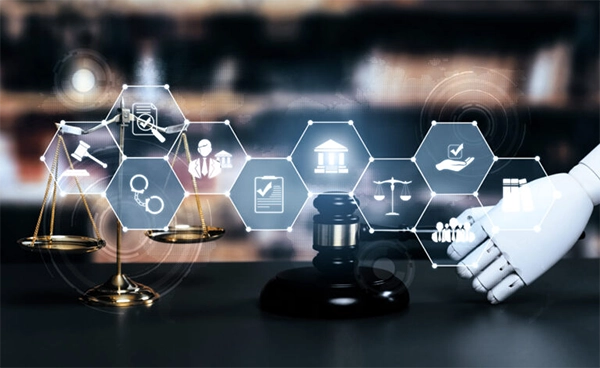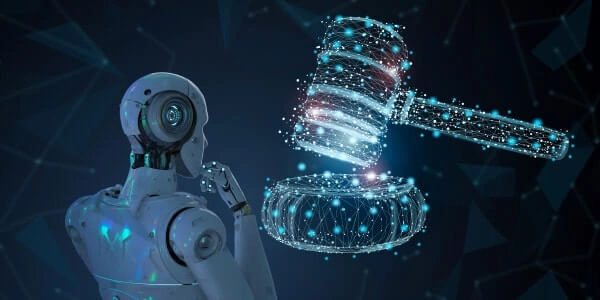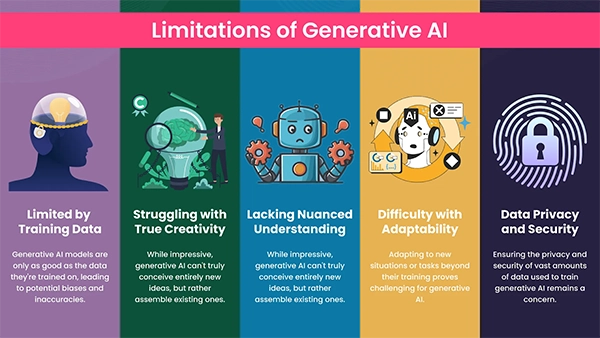
“Generative models are changing the way we think about machine intelligence and creativity, and have the potential to transform industries from media to finance to healthcare.
—Oriol Vinyals (Computer Scientist)
Generative AI has been transforming all the sectors and has been greatly beneficial to nearly every sector and has been projected to reach $62.72 billion in 2025. In simple terms, generative AI can produce images, videos, music, stories, and more; all you have to do is insert the correct prompt.
The law field has also started taking advantage of it, law firms like MurphyTrialLaw have integrated it into their process to produce better outcomes. So far, results have been positive, and time-taking tasks are being done on time. It even opens up new transformational possibilities for businesses.
In this article, I’ll mention how it has been proven to be a revolutionizing different law domains and what are some challenges that are still being faced.
Law domains were known to take hours or even days to get work done, but with generative AI, the entire process has been streamlined. Several AI models can analyze bulk data in seconds, which results in increased efficiency.
Additionally, attorneys can further use it to make decisions or use it in complex cases, this is something that they weren’t able to do before. Family and criminal justice lawyers can automate routine tasks, giving them time to address their clients’ needs.
FUN FACTIn 1961, computer scientist Joseph Weizenbaum created an AI module called ELIZA, which can generate text-based responses by simple pattern recognition!
AI tools can greatly benefit law practitioners as they can check docs thoroughly and match them with the official legal texts or contracts and find out any errors. Contract reviews can be hectic, and there was no guarantee that they would be perfect, but that isn’t the case anymore.
Apart from pointing out flaws, artificial intelligence can pinpoint potential risks and inconsistencies, reducing human error completely. It can also suggest improvements, allowing the professional to make strong strategies and present a better case.

Drafting legal documents as per the legal standards requires hours of researching, but that’s why you have AI; let it handle it and see how fast it gets the job done. It can analyze all the legal documents and, after that, draft a final one based on your needs.
Since it goes through all the verified papers, the chances of it making any error is less than 5%. The best part is, every time they process something it gets stored in their database, so in the future, you wouldn’t have to add all the details again and again.
Nobody wants that their creativity to get stolen and for someone else get the credit for their work. Generative AI takes care of intellectual property protection by identifying infringements and unauthorized use of creative work.
Since it uses an advanced algorithm, it handles these tasks flawlessly. Not only does it safeguard the original content from being used anywhere else, it can also tell where it was being used, and the violator can be determined easily.
Creators often have to get their work verified, patented, and trademarked, and AI can greatly assist them with the process.
Humans aren’t perfect, and neither is AI, since it is also created by us. Some challenges and limitations are commonly faced while using generative AI, and those can be seen in the infographic below.

While they do produce instant results, sometimes those can be misleading or incorrect, and that’s why it’s important to read it through before sending it forward. Another major ethical consideration comes to privacy.
Clients’ information and other sensitive data are processed by AI and stored automatically, raising security and privacy concerns. Not to mention those who are still practicing, intend on relying on AI too much that sometimes they overlook crucial details.
It is also not that easy to integrate into professional law firms where, for decades, everything has been done manually; it will take time for people to get used to it and leverage its potential.
While there are some drawbacks, those can be overcome easily if people don’t completely rely on it and do give it a look once generative AI is done. It works like a two-step verification, resulting in perfect outcomes.
The law field will experience major growth in the upcoming years with the help of generative AI. While it is still a new concept here, if professionals understand how to use it, it will greatly benefit them and their cases.
Artificial intelligence has been transforming business, healthcare, law, and any other industry you can think of. It is our future.
